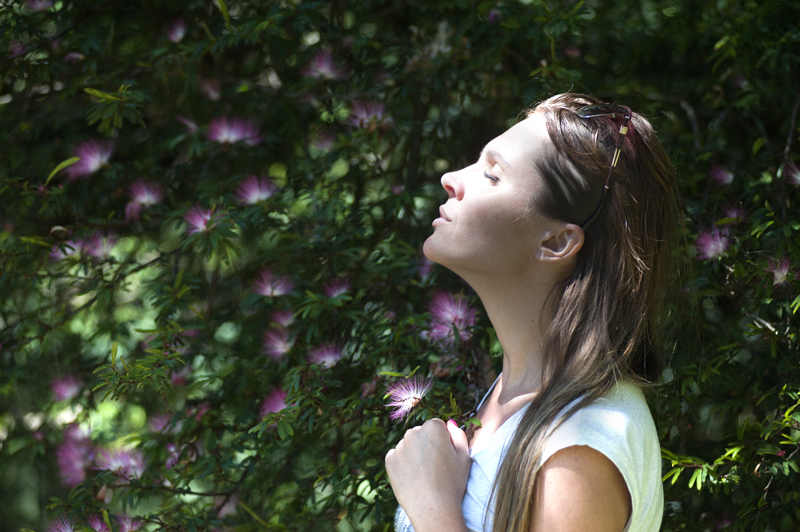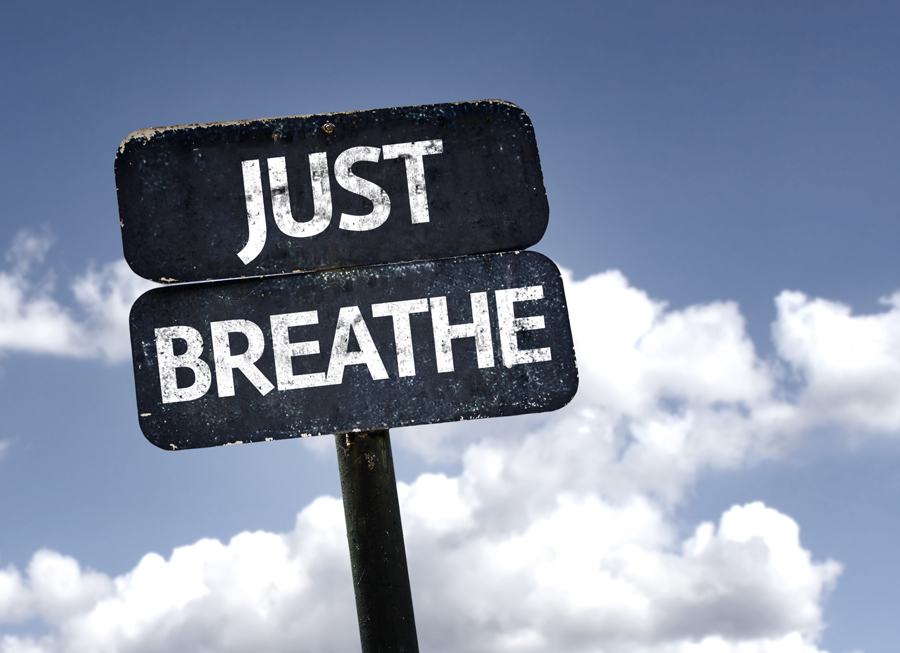 Breathing is one of the bodily functions that you can control on your own with very little effort. You can regulate your breathing with a little bit of practice in order to calm your mind and body to relieve stress and anxiety when they inevitably arise. If you’re a naturally high-strung person, this may take some practice but, luckily, these breathing exercises for stress and anxiety can help you. Practice these on your own and soon you’ll be able to calm yourself down and reach a more peaceful state of mind through your breathing.
Breathing is one of the bodily functions that you can control on your own with very little effort. You can regulate your breathing with a little bit of practice in order to calm your mind and body to relieve stress and anxiety when they inevitably arise. If you’re a naturally high-strung person, this may take some practice but, luckily, these breathing exercises for stress and anxiety can help you. Practice these on your own and soon you’ll be able to calm yourself down and reach a more peaceful state of mind through your breathing.
Benefits of Breathing Exercises for Stress and Anxiety
Breathing properly can help you feel physically and mentally better. This is probably not new information for you as you’ve more than likely noticed that deep breaths can calm you down or you have heard that breathing into a paper bag can stop panic attacks. Stress and anxiety can overtake you and affect your body physically to the point where it can make you sick. Breathing exercises for stress and anxiety can help with this. Here are some of the benefits of such exercises.
1: Breathing Slows
As you take the time to concentrate on your breathing, you can control yourself and take slower, deeper breaths. This sends signals to your brain that tell you to relax and be calm.
2: Health Benefits
As your body calms down, different physiological factors are positively affected.
- Blood pressure lowers
- Heart rate slows down
- Muscles relax
- Blood flow increases to the brain
3: They’re Easy to Do
Breathing exercises don’t require anything other than you. You don’t need any special equipment or any specific skill. You can perform them at any time wherever you are at the moment.
4: Other Physical Effects
Besides what was mentioned above, breathing exercises can also help fight off illnesses, relieve pain in the body, help with your concentration/problem solving, boost motivation, and elevate your mood.
Simple Exercises for Stress and Anxiety
Here are some breathing exercises for stress and anxiety that have proven to help people feel better. You can try each one on your own and see if it works for you. As everyone is different, you may find that one exercise is better for you than another one. If something feels uncomfortable for you, try another exercise, instead.
Exercise 1: Equal Breathing
- Benefits: This exercise will calm your nervous system and help reduce stress and increase your focus. Breathing only through your nose will also give you natural resistance which will keep your breath slow.
- Practice: Inhale for a count of four and exhale for a count of four. Do this all through the nose, not the mouth. You can increase the counts up to eight if you are comfortable doing so. You can do this anywhere at any time but it is especially effective before going to sleep.
Exercise 2: Abdominal Breathing
- Benefits: This technique will reduce your heart rate and lower your blood pressure.
- Practice: Place one hand on your chest and the other on your belly. Take one deep breath in through your nose moving your diaphragm, not your chest. Take six to 10 deep breaths every minute for about 10 minutes once a day for at least six to eight weeks to get continuous benefits from this. This can be done anywhere especially during stressful times.
Exercise 3: Alternate Nostril Breathing
- Benefits: This is done a lot by yogis and is meant to calm you down and bring balance between the right and left halves of your brain. It can also clear your mind and make you feel more alert.
- Practice: Sit in a meditative pose and hold your right thumb over your right nostril. Inhale through your left nostril. Close off the left nostril with your ring finger while releasing the right nostril. Then, exhale through the right nostril. Inhale through the right and then out through the left in the same fashion. Continue this pattern until you feel calm. Try not to do this at night as it can give you more energy.
Exercise 4: Skull Shining Breath
- Benefits: This is considered more advanced but can help brighten up the day. It will give you the energy to start your day by waking up your brain and engaging your abdomen.
- Practice: Start by inhaling deeply and slowly through your nose. Then, quickly and powerfully exhale the air again through the nose. Do this a few times to get comfortable with the exercise. Once comfortable, aim to do one cycle of inhaling and exhaling every two seconds 10 times. This is best done at the beginning of your day.
Tips for Breathing Exercises
 If you regularly feel stress and anxiety, you might find it difficult to control your breathing properly when you first try to do any of the breathing exercises for stress and anxiety. Sometimes, people who are normally anxious have trouble slowing their breathing, taking deep breaths, or relaxing in general. If you realize that you may be one of these people, keep these tips in mind:
If you regularly feel stress and anxiety, you might find it difficult to control your breathing properly when you first try to do any of the breathing exercises for stress and anxiety. Sometimes, people who are normally anxious have trouble slowing their breathing, taking deep breaths, or relaxing in general. If you realize that you may be one of these people, keep these tips in mind:
- Inhale a normal amount of air gently and slowly through your nose
- Allow air to fill your belly instead of your chest
- Exhale in a controlled manner, not in a huff
- Hold your breath for a count of three before exhaling
- Purse your lips as you exhale
- Relax your body with every exhale
- Sit in a comfortable position
- Try saying “relax” when you exhale
- Close your eyes as you breathe
- Take 10 natural breaths before starting an exercise
- Count down from 10 as you take natural breaths
Conclusion
Hopefully, these breathing exercises for stress and anxiety will help you reach a calmer state and become more relaxed in your daily life. As an added benefit, you’ll hopefully also notice lower blood pressure and a decreased heart rate. This will help you lead a healthier life with less physical problems, too. Try each exercise on your own and remember to only do what is comfortable for you.
Anna Smith is chief editor at Healthankering.com. She is a proud mother of three and passionate about health tips, beauty and ways to live healthier with more energy! Anna started Healthankering to provide advanced material about not only the best ways to get healthy, but also to entertain and create a great community. Follow HealtHankering on Twitter: @healthankering
